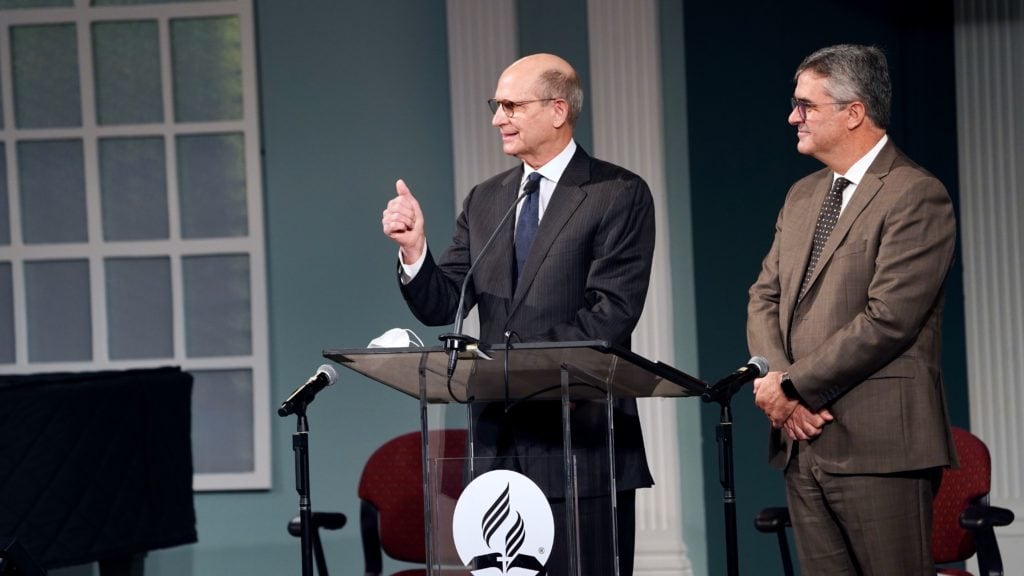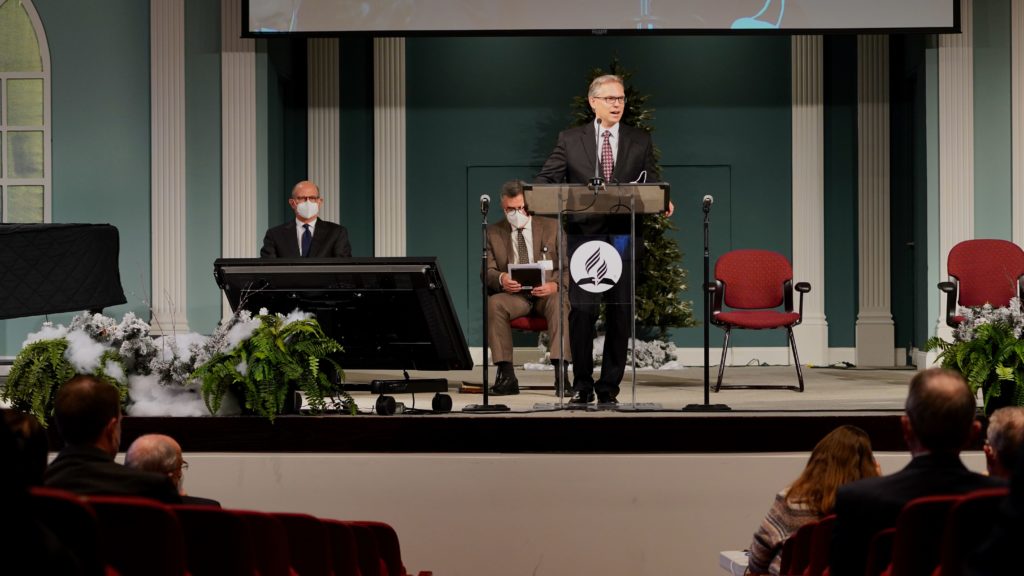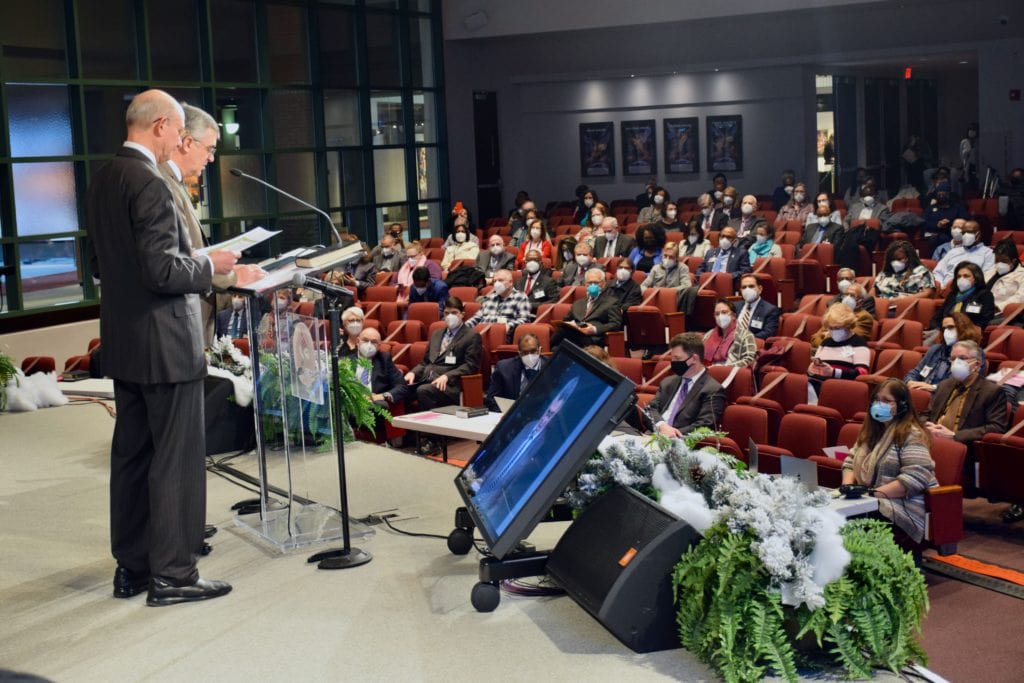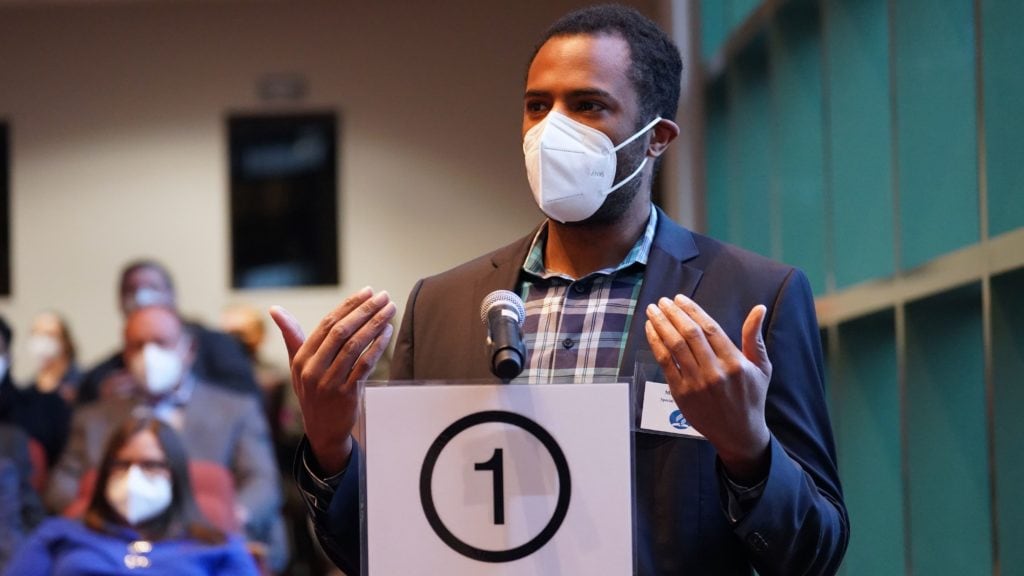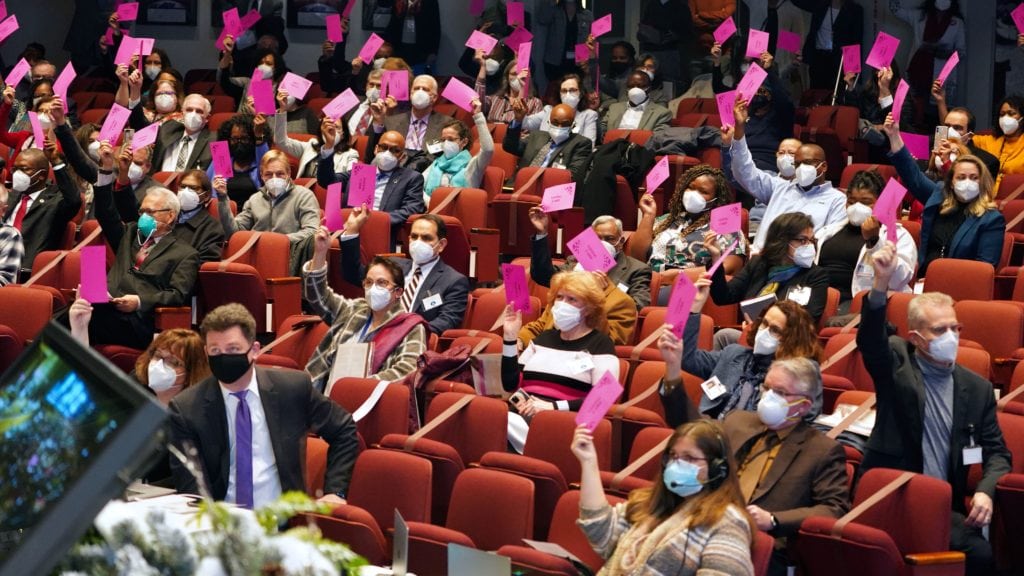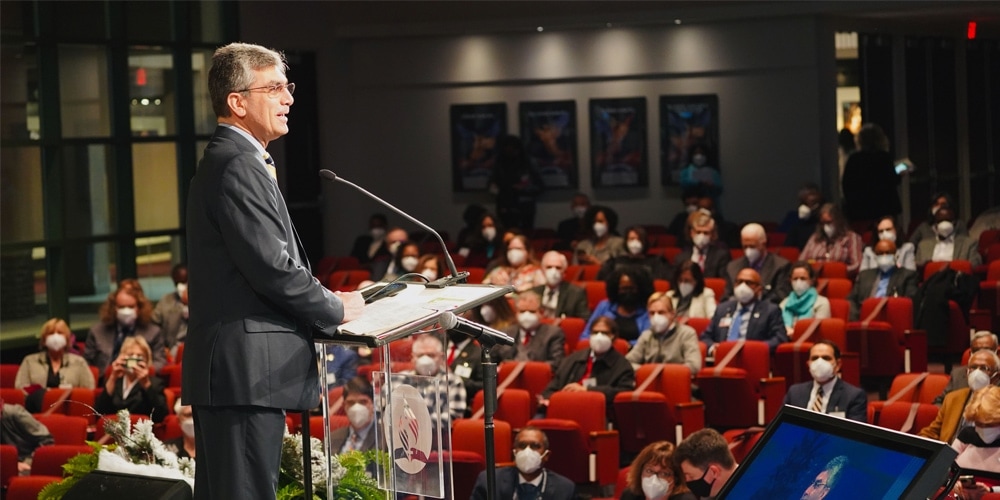
Delegates to a Special General Conference (GC) Session voted to allow the inclusion of a new section to Article V of the GC Constitution that will allow delegates to participate by digital means in a future GC Session in the event that unforeseen and unavoidable circumstances arise. The unanimous vote took place during a one-day, one-item session at the Adventist Church’s headquarters in Silver Spring, Maryland, United States, on January 18, 2022.
The GC Constitution amendment vote would allow delegates to participate in the upcoming GC Session to take place June 6-11, 2022, even if they could not physically travel to the venue in St. Louis, Missouri, United States, because of the impact of the COVID-19 pandemic, church leaders said.
Due to current COVID-19 travel restrictions, the delegates for the special January 18 Session were chosen using primarily individuals who currently work at the GC headquarters in Silver Spring. These delegations were approved by each division and consequently voted by the General Conference Executive Committee on September 16, 2021.
The recommended amendment, voted by the GC Session delegates, reads as follows:
Article V. Sec. 4. Generally, regular or specially called General Conference Sessions are to be held in person and onsite. However, delegates when requested by the General Conference Executive Committee may participate by means of an electronic conference or similar communications by which all persons participating can hear each other at the same time, and participation by such means shall constitute presence in person and attendance at such a meeting. Votes cast remotely shall have the same validity as if the delegates met and voted onsite.
The GC Executive Committee (EXCOM) would still have to make a decision at the appropriate time based on the current circumstances whether the GC Session would be held virtually, in person, or as a hybrid of the two.
Background to the Vote
The January 18 Special GC Session had been voted on April 13, 2021, by the members of the GC EXCOM. It was at that time that the January 18 date and the venue at the church’s headquarters were selected.
At the time, Adventist Church undersecretary Hensley Moorooven had detailed some of the factors considered in presenting this proposal. According to Moorooven, the GC Constitution stipulates that GC Sessions and all voting must take place in-person and onsite. Additionally, Article V, Section 1 of the constitution states that postponing a GC Session should not “exceed two years” beyond a regularly scheduled date. The possibility of another delay because of the ongoing worldwide impact of the pandemic would put the General Conference out of compliance with its governing document. Moorooven then had explained that amendments to the GC Constitution and Bylaws can only be done by the delegates at a regular or special GC Session. All in all, Moorooven said, the church leaders’ proposal stays within the appropriate provision of the GC Constitution and Bylaws.
In 2020, a meeting of the GC EXCOM had already voted to propose an amendment to the GC Constitution that would allow for virtual participation when specifically requested by the Executive Committee.
Based on the authority granted to it in Article V of the Constitution to reduce the total number of delegates to a GC Session for reasons of a “major crisis within the Church or international arena,” GC EXCOM had also voted on April 13 to reduce the total number of regular and at-large delegates to the January Special GC Session to 400 people for this specific meeting. The allocated quota of delegates for the GC, 13 divisions, and two attached unions was approved as well. The motion included a request that divisions unable to send their allotted quota of delegates due to travel restrictions or other reasons be allowed to reallocate their unused quota back to the GC. The GC Administrative Committee then designated these positions to individuals currently working at the GC headquarters, primarily from the divisions which shared their quota.
Feedback from Delegates and Leaders
During the January 18 Session, and after GC secretary Erton Köhler read and moved the amendment to Article V of the GC Constitution, several delegates approached one of the two microphones placed in the auditorium to weigh in on the motion proposed.
Murray Carson, a delegate representing the South Pacific Division, commented that in general, he agreed with what was being proposed. “It’s good to be able to vote remotely,” he said. “What I would like to present is that the part that’s being [changed] is fairly straightforward, fairly layman in nature. The part that we are inserting is more of a legalese.… I don’t particularly appreciate that…. [But] I think this is good for right now.”
GC education director Lisa Beardsley-Hardy, on the other hand, said she appreciated the solution found, given the circumstances. “Things are going to get worse as we get to the end of time. This allows us to stay organized as we move forward,” she said.
After the vote and on the sidelines of the January 18 Session, GC executive secretary Erton Köhler commented how he felt after the vote. “I was impressed by the strong support the delegates gave to the motion,” he said. “In situations like these, it is usual to get different opinions, but we received just a few observations. This shows to me that the church is united for mission.”
Köhler explained that the issue at hand was rather technical, unrelated to doctrinal or philosophical issues. “Still, it was important to approve it; otherwise, the work of the church may be hindered,” he said. “From the unanimous vote it was clear that delegates want the church to move forward.”
According to him, the vote also showed that the Adventist Church understands the times it’s living in. “I saw in delegates a clear interest in adapting our structure and processes, in making adjustments that may help the church to streamline its operations,” Köhler said.
GC general counsel Karnik Doukmetzian also weighed in on the January 18 Special GC Session, explaining the importance of the vote taken. “The vote to amend was significant in that it makes provision for the future in case meetings of the General Conference Session cannot be held in person to allow for individuals to be ‘present,’” Doukmetzian said. “World conditions may not allow for delegates to travel to be present in person, and this provision allows those delegates to participate and represent their territories even if they cannot physically travel to the site of the session.”
Doukmetzian explained that worldwide representation is important for a GC Session. Accordingly, “this provision will allow this to occur regardless of conditions which would prohibit travel or attendance,” he said.
